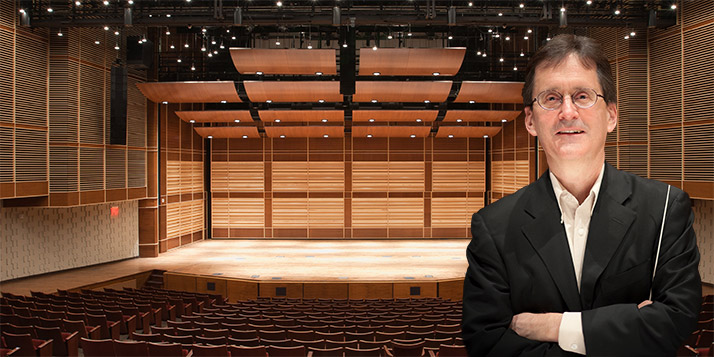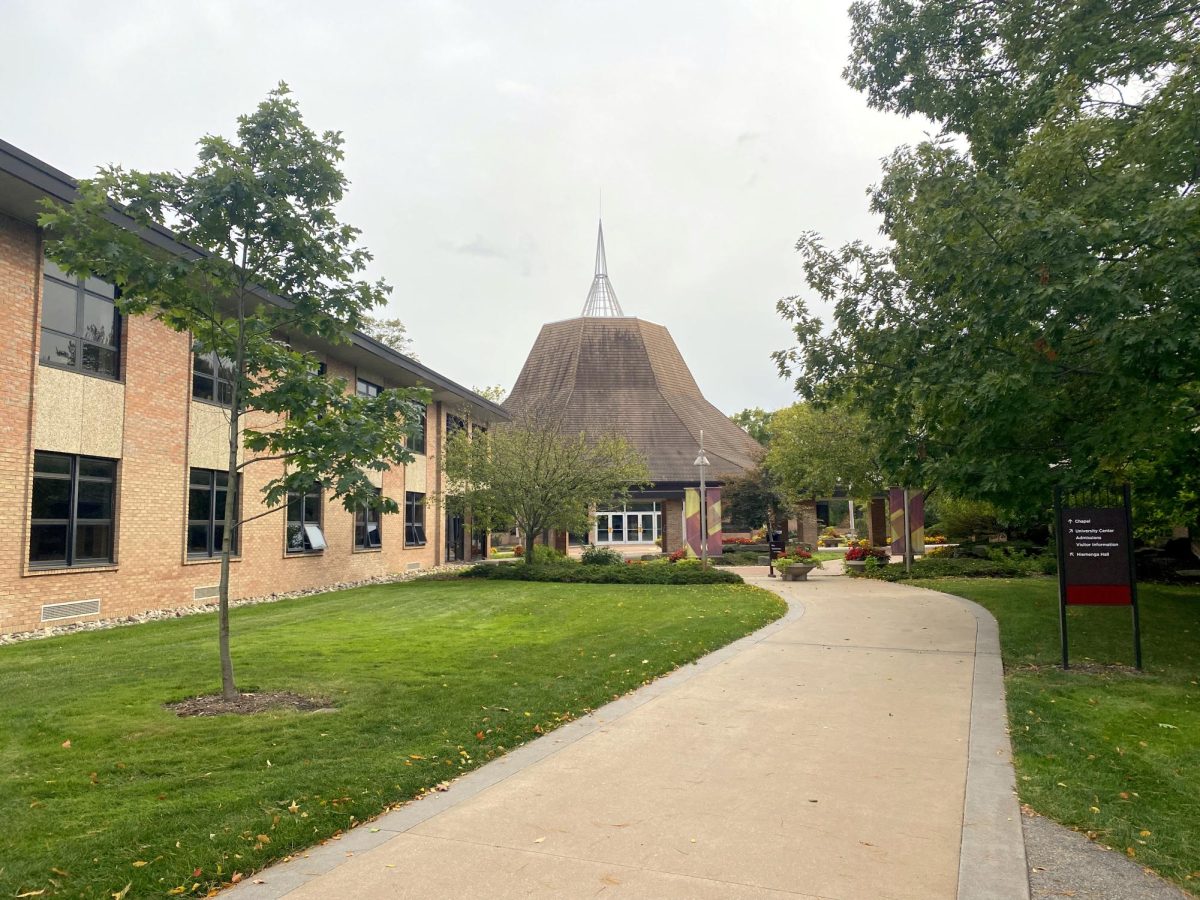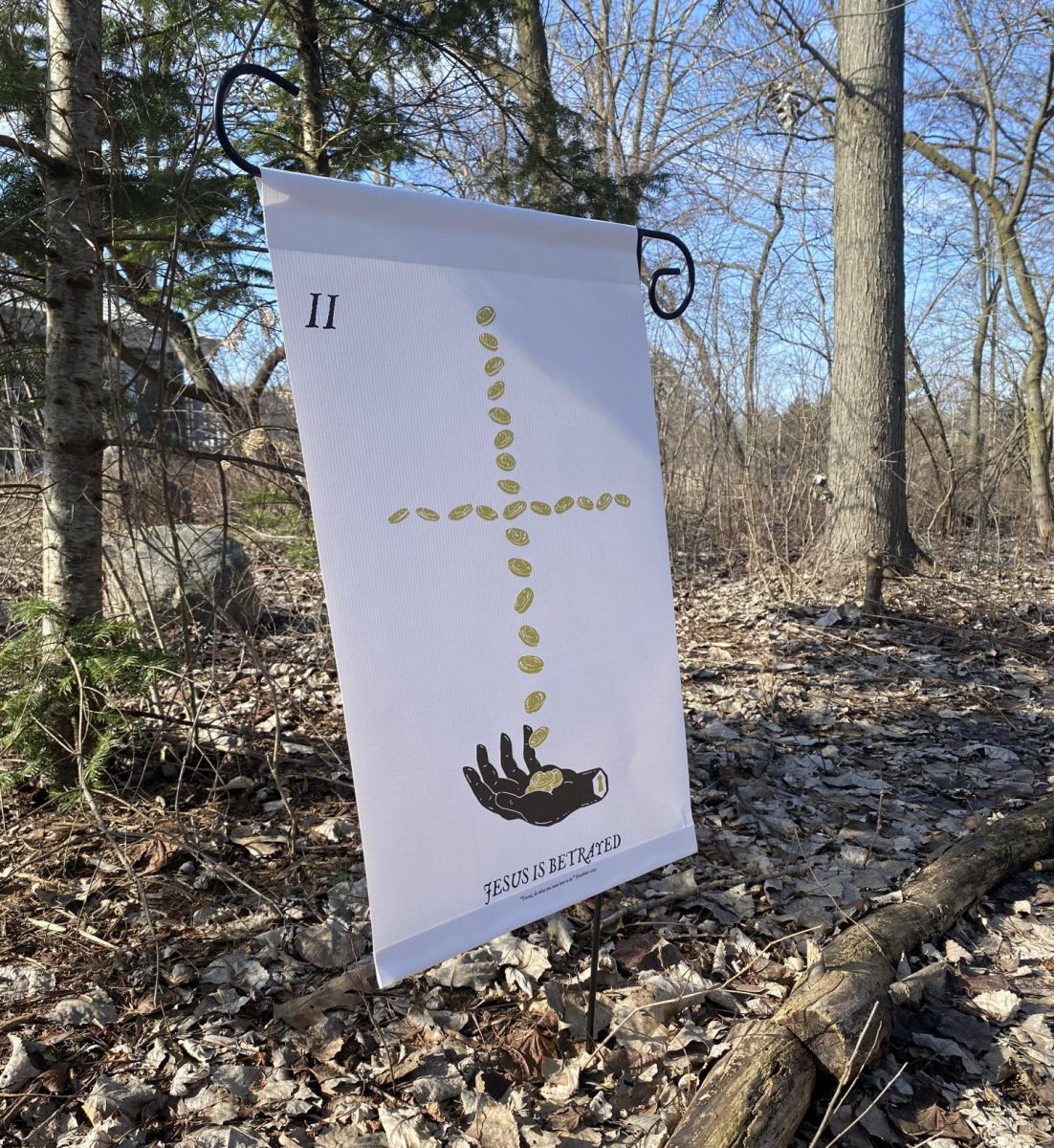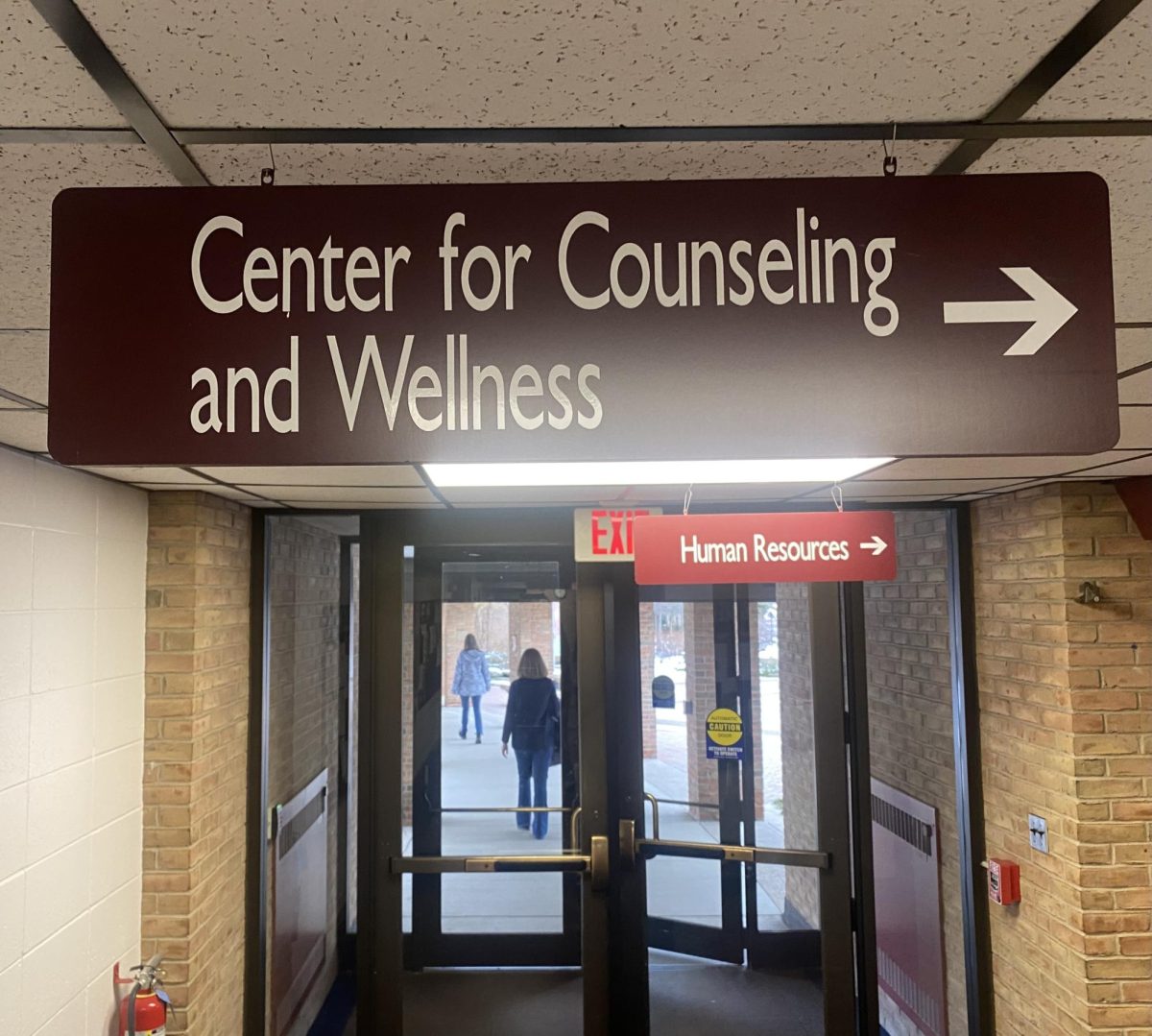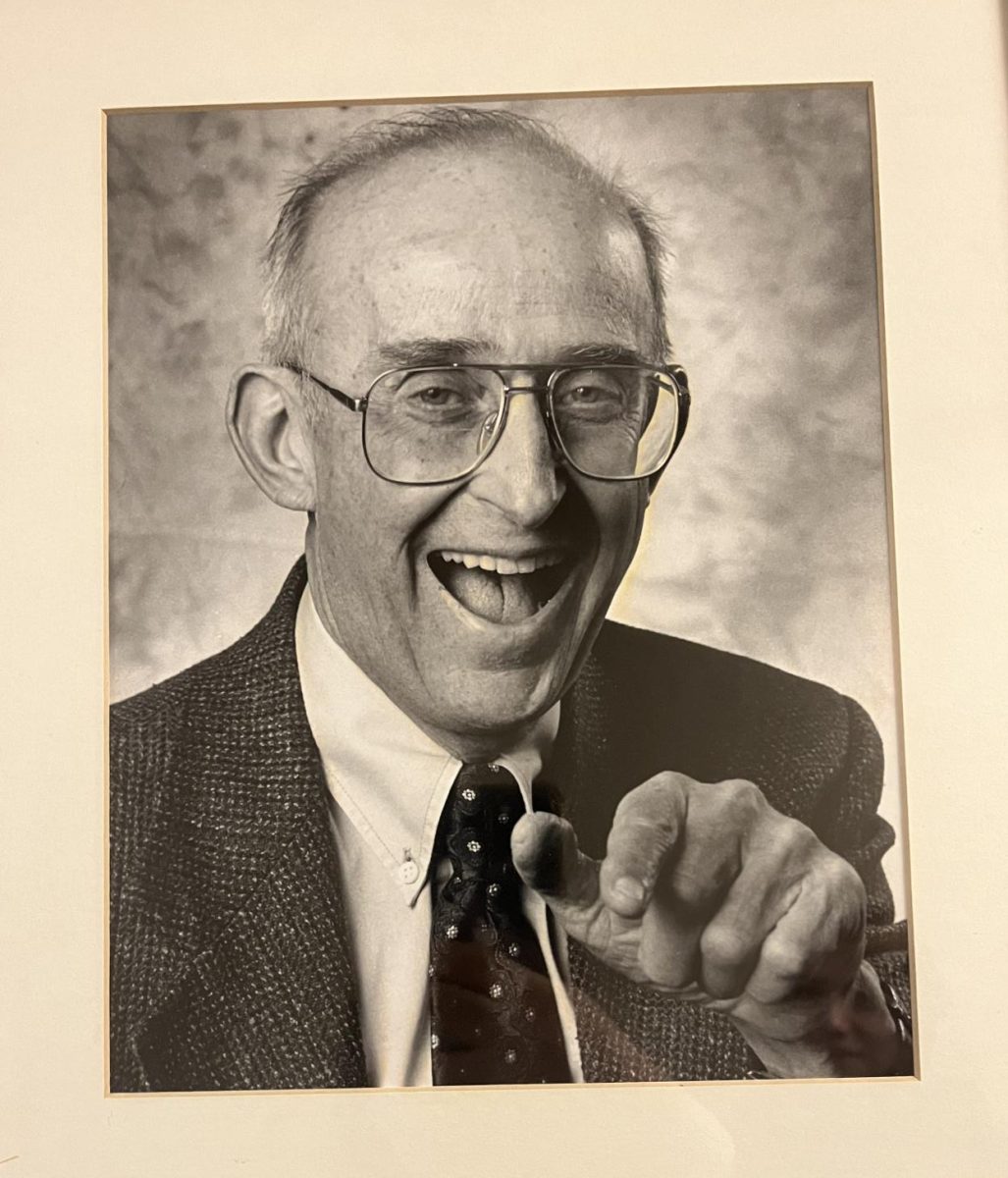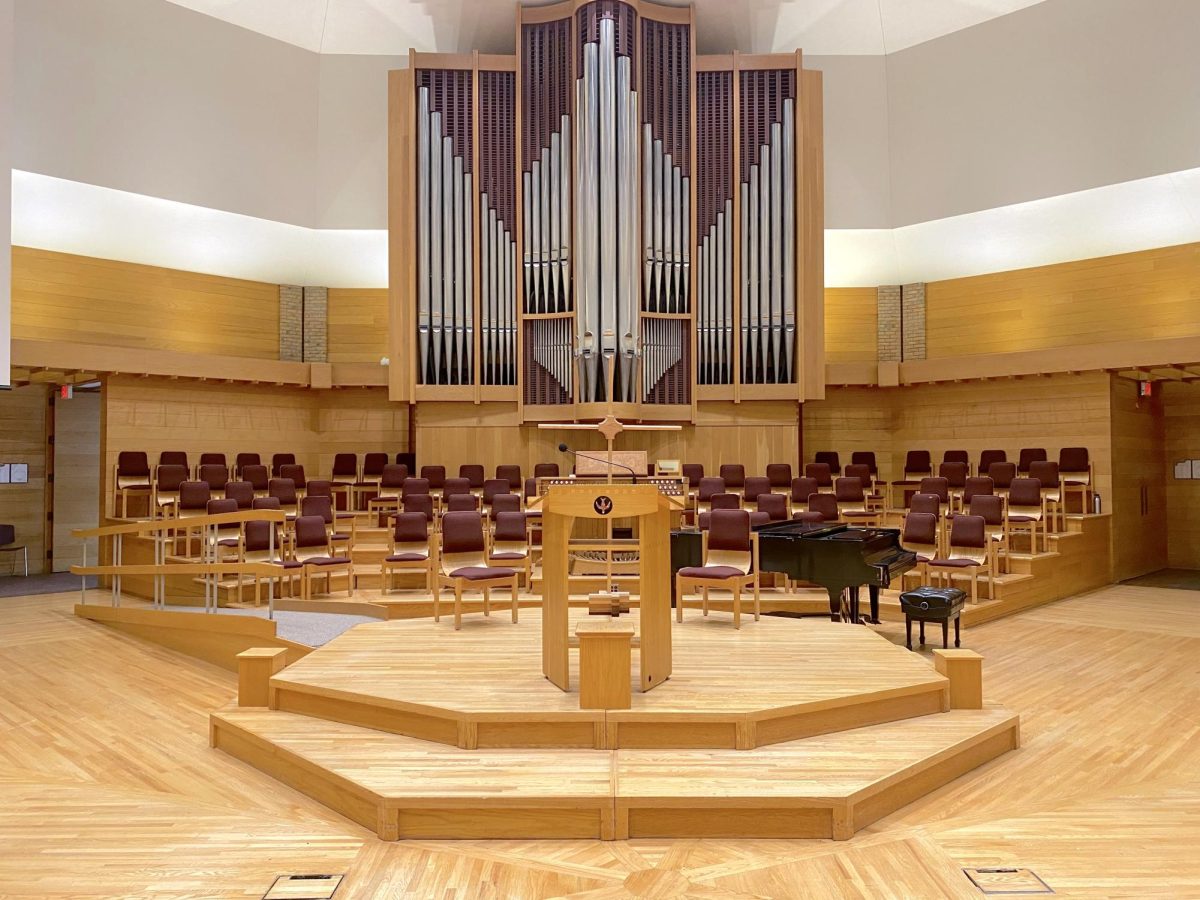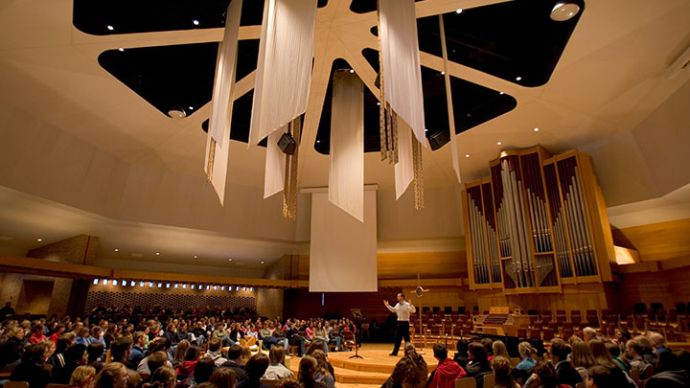John Varineau is a clarinetist, a professor of music at Calvin College and the conductor of the Calvin College Orchestra. He also conducts the Grand Rapids Symphony Orchestra, the Grand Rapids Youth Symphony and the Calvin Community Symphony.
Chimes sat down with Professor Varineau to discuss what it’s like being a Christian musician and how Christians in general should look at music.
Chimes: How is teaching music at a Christian college different than teaching at a secular institution?
Professor Varineau: Well, I think that teaching at a Christian college gives one the luxury of both verbally and actively demonstrating one’s faith in the subject matter that we’re teaching.
Within a secular environment and a secular society such as what we have, overt statements of faith are a little bit difficult to make, so your faith involvement needs to be just in what you do. Within a Christian college, you can say what you do as well.
Chimes: What’s the most challenging part of being a Christian musician?
Professor Varineau: I would say the most challenging part that I’ve faced in being a Christian involved in music is trying to reconcile what I’m doing, much of which is secular in intent, with who I am.
There’s nothing inherently wrong with secular music, but I find difficulty in trying to reconcile what I’m doing with a particular piece of music.
For me, the key lies in a little piece of writing Nicholas Wolterstorff did in his book “Art in Action,” where he says that one of the goals of humanity bringing shalom to the world. Shalom is peace and rest, and part of that shalom can be found in aesthetic enjoyment of things like music.
But the challenge is always reconciling that sort of shalom with whether I’m fully involved in the great commission. I’m continually asking myself, what role does what I’m doing have in God’s kingdom?
Chimes: What are some typical dangers that Christian musicians need to watch out for?
Professor Varineau: I think that Christian musicians who are involved in music where there are words attached to it have to be careful with what those words are. A lot of pop music is word-oriented, and a lot of those words aren’t God-honoring at all. That’s a very tricky road to walk.
I remember years and years ago I was involved in an orchestral performance for Halloween. One of the pieces this particular orchestra chose was some choral music from a film, and some of the words were “Hail, Satan.” And I found it impossible to play that.
I talked to the conductor and told him I was happy to play the concert but that I couldn’t be a part of something where the words are “Hail, Satan.” The guy looked at me like I was completely nuts, but he let me off the hook on that.
I take great comfort in the fact that a huge percentage of what I do is instrumental music, not attached to words at all, so I’m off the hook on that.
Chimes: Are musicians really “off the hook” when it comes to instrumental music?
Professor Varineau: Yes, I think so. I think that instrumental music, where the only thing we’re dealing with is the beauty of the combination of notes, is much easier to deal with as a musician.
A good example of this would be Stravinsky’s “Rite of Spring,” which is a ballet about pagan rites in pre-Christian Russia. The final denouement of the ballet is when a young virgin dances herself to death.
That’s not a particularly happy story, but the music itself is fantastic, and it’s possible to enjoy the “Rite of Spring” for the sake of the aesthetic satisfaction of the notes themselves.
Chimes: What is your favorite experience you’ve had regarding music, faith, worship or all three?
Professor Varineau: My favorite experience comes in performing music. There are all sorts of great pieces, so I don’t know if I have a favorite in that area. As a clarinetist, I’ve participated in some really satisfying and uplifting performances of the Mozart Clarinet Quintet.
And in terms of a music and faith encounter, I once conducted the “Prayers of Kierkegaard” set to music by Samuel Barber, and that was a very profound experience for me.
Chimes: What general suggestions would you give for how Christians should approach music?
Professor Varineau: The general way that we can all approach music is accepting it as one of God’s great gifts to us. Music as music, as an art form, is God’s bestowing of grace to us through beauty.
We can encounter all styles of music as acceptance of this ineffable gift of ordered sound from God. When we communicate truth and beauty through music, we are bring shalom to our fellow human beings.
This interview has been condensed and edited.




